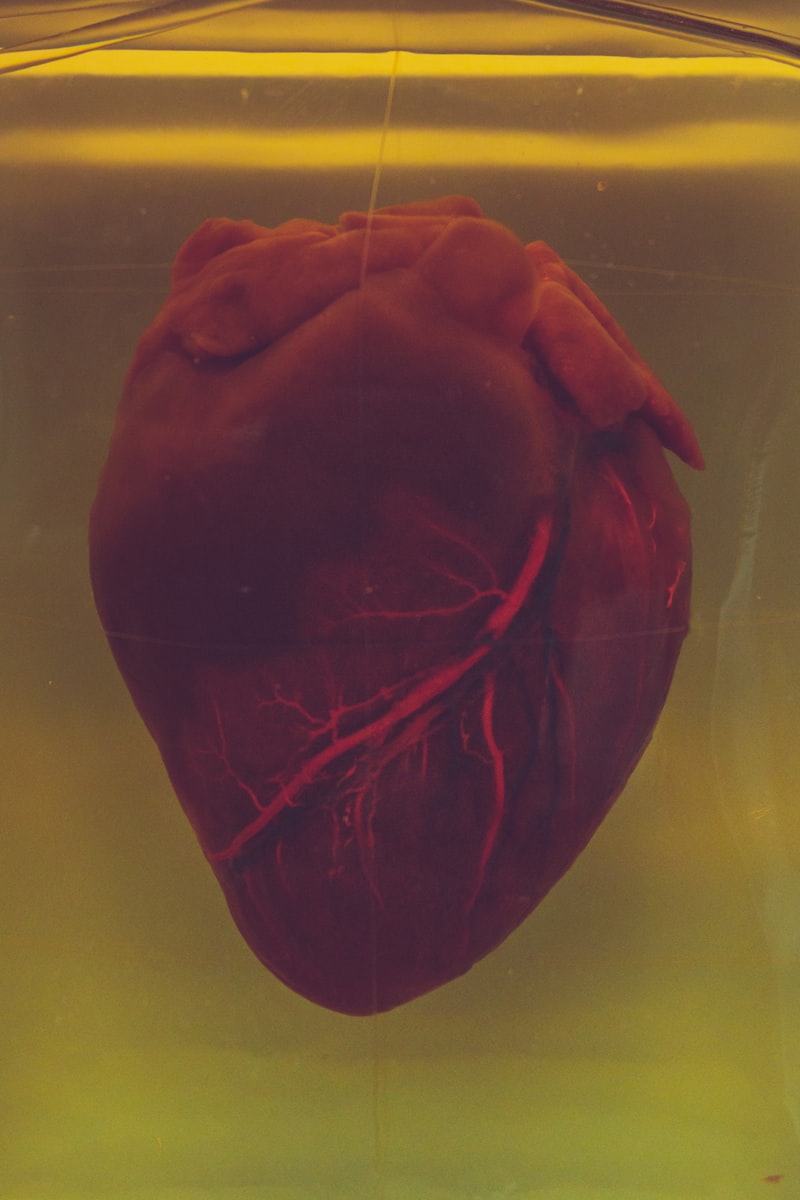Worried about your heart health? Taking preventive measures is key to keeping your heart strong and healthy. Heart disease is a leading cause of death worldwide, but many risk factors can be managed through lifestyle choices and regular check-ups.
One of the most effective preventive steps is maintaining a balanced diet. Focus on eating plenty of fruits, vegetables, whole grains, and lean proteins. Limit saturated fats, trans fats, and cholesterol-rich foods to keep your arteries clear and reduce the risk of plaque buildup.
Regular physical activity is another crucial factor. Aim for at least 30 minutes of moderate exercise most days of the week. Whether it’s brisk walking, jogging, cycling, or swimming, staying active helps lower blood pressure, control weight, and strengthen your heart muscle.
Managing stress is often overlooked but plays a significant role in heart health. Chronic stress can contribute to high blood pressure and other heart disease risk factors. Practice relaxation techniques such as deep breathing, meditation, or yoga to reduce stress levels and promote overall well-being.
Quit smoking if you haven’t already. Smoking is a major risk factor for heart disease as it damages the lining of your arteries, leading to a buildup of fatty material which narrows the arteries, reducing blood flow to your heart. If you need help quitting, seek support from friends, family, or healthcare professionals.

Regular health screenings and check-ups are essential. Monitoring blood pressure, cholesterol levels, and blood sugar can help detect any issues early on. Your doctor can provide personalized advice on managing these factors and reducing your risk of heart disease.
By adopting these preventive measures into your daily routine, you can significantly lower your risk of heart disease and enjoy a healthier life.
Heart Health Essentials: Top 5 Preventive Measures You Should Know
Taking care of your heart is crucial for overall well-being. Understanding the key preventive measures can make a significant difference in maintaining heart health. Here are the top 5 essentials you should know:
-
Healthy Diet: Your heart thrives on a balanced diet rich in fruits, vegetables, whole grains, lean proteins, and healthy fats. Avoiding excessive salt, sugar, and processed foods can lower the risk of heart disease.
-
Regular Exercise: Physical activity is like a tonic for your heart. Aim for at least 30 minutes of moderate exercise most days of the week. Whether it’s brisk walking, swimming, or cycling, staying active improves circulation and strengthens the heart muscle.
-
Managing Stress: Chronic stress can take a toll on your heart. Practice relaxation techniques such as deep breathing, meditation, or yoga to reduce stress levels. A calm mind contributes to a healthier heart.
-
Quit Smoking: Smoking is a major risk factor for heart disease. If you smoke, quitting is one of the best things you can do for your heart. Seek support from friends, family, or a cessation program to kick the habit for good.
-
Regular Health Check-ups: Prevention is better than cure. Schedule regular check-ups with your healthcare provider to monitor blood pressure, cholesterol levels, and overall heart health. Early detection of any issues allows for timely intervention.
By incorporating these preventive measures into your lifestyle, you empower yourself to take charge of your heart health. Small changes can lead to significant improvements in the long run, ensuring your heart stays strong and healthy.
Beyond Diet and Exercise: Uncommon Ways to Guard Against Heart Disease
When it comes to safeguarding our hearts, most of us immediately think of diet and exercise. While these are crucial, there are lesser-known strategies that can significantly bolster heart health. Imagine your heart as a well-tuned engine—besides fuel and maintenance, what else could ensure its longevity?
One often overlooked aspect is the power of laughter. Yes, laughter! Studies have shown that laughter can reduce stress hormones like cortisol and increase beneficial compounds in the blood vessels, promoting better heart health. It’s like giving your heart a daily dose of sunshine.
Another surprising ally is pet ownership. Whether you’re a cat lover or a dog enthusiast, having a furry friend can lower blood pressure, reduce cholesterol levels, and decrease the risk of heart disease. The companionship and joy pets bring also contribute to reduced stress and anxiety, factors closely tied to heart health.
Moreover, did you know that volunteering could be good for your heart? Engaging in altruistic activities has been linked to lower blood pressure and reduced inflammation markers. It seems that giving back not only warms the soul but also strengthens the heart.
Furthermore, cultivating strong social connections is vital. Research suggests that people with robust social networks tend to have lower risks of heart disease. Meaningful relationships provide emotional support, reduce feelings of loneliness, and contribute to overall well-being—a heart-healthy trifecta.
Lastly, don’t underestimate the power of a good night’s sleep. Quality sleep is essential for heart health as it allows the body to repair and rejuvenate. Poor sleep habits, on the other hand, can lead to increased stress hormones and higher blood pressure, detrimental to cardiovascular health.
Incorporating these unconventional approaches alongside a balanced diet and regular exercise can create a holistic strategy for guarding against heart disease. After all, a healthy heart isn’t just about what you eat or how much you move—it’s about embracing life’s pleasures, caring for others, and nurturing meaningful connections.
Early Detection Saves Lives: The Importance of Regular Heart Screenings
Imagine your heart as the engine of your body, tirelessly pumping blood and oxygen to every cell. Just like any engine, it needs regular check-ups to ensure smooth operation. A heart screening is like a comprehensive tune-up for your cardiovascular system, where healthcare professionals use various tests to evaluate your heart’s function and detect any underlying problems.
One of the most significant benefits of regular heart screenings is the early detection of cardiovascular diseases such as coronary artery disease, heart attacks, and strokes. These conditions often develop silently over time, with symptoms appearing only when significant damage has already occurred. By undergoing routine screenings, individuals can be alerted to potential risks early enough to take preventive measures.
Moreover, heart screenings provide an opportunity for healthcare providers to assess other risk factors such as high blood pressure, cholesterol levels, and diabetes—all of which contribute to heart disease risk. Addressing these risk factors early through lifestyle changes or medications can significantly reduce the likelihood of developing heart-related complications later in life.

In essence, prioritizing regular heart screenings is a proactive step towards maintaining good heart health. It empowers individuals with the knowledge of their cardiovascular status and allows them to make informed decisions about their well-being. Just as we maintain our cars to prevent breakdowns, regular heart screenings help us take charge of our health, ensuring our hearts keep beating strong for years to come.
Is Stress Putting Your Heart at Risk? Effective Coping Strategies
Firstly, mindfulness and relaxation techniques can work wonders. Taking a few moments each day to practice deep breathing, meditation, or yoga can help lower stress hormones like cortisol and promote a sense of calm. Imagine these techniques as a soothing balm for your frazzled nerves, gently easing the tension away.
Exercise is another potent tool against stress-induced heart risks. Physical activity releases endorphins, those feel-good chemicals in the brain, which not only uplift your mood but also strengthen your heart muscles and improve circulation. It’s like giving your heart a hearty workout session to keep it in top shape.
Maintaining a healthy diet is crucial as well. Fueling your body with nutritious foods like fruits, vegetables, whole grains, and lean proteins provides the necessary nutrients to support your heart’s function under stress. Think of it as giving your heart the premium fuel it deserves to keep humming along smoothly.

Social support plays a significant role in stress management too. Connecting with friends, family, or support groups can provide emotional reassurance and practical advice during tough times. It’s like having a safety net that helps you navigate through life’s challenges without feeling overwhelmed.
Lastly, don’t underestimate the power of a good night’s sleep. Adequate rest allows your body and mind to recover from daily stressors, promoting overall well-being and resilience against heart-related issues. Picture it as giving your body the downtime it needs to recharge and prepare for whatever comes next.
By integrating these effective coping strategies into your daily routine, you can significantly reduce the impact of stress on your heart health. Remember, small changes can lead to big improvements when it comes to caring for your heart amidst life’s inevitable stressors.
Heart-Healthy Habits: How Sleep and Stress Management Impact Cardiovascular Health
Have you ever thought about how your sleep and stress levels affect your heart? Turns out, they play a crucial role in your cardiovascular health. Let’s dive into why managing these two aspects of your life is vital for a healthy heart.
Firstly, sleep is not just about feeling rested; it’s about giving your heart the downtime it needs to stay strong. During deep sleep, your heart rate and blood pressure go down, giving your heart a break from the daily grind. Imagine it like a reset button for your cardiovascular system, ensuring it functions smoothly day after day.
On the flip side, poor sleep—whether it’s from insomnia, sleep apnea, or irregular sleep patterns—can raise your blood pressure and stress hormones, increasing the strain on your heart over time. It’s like asking your heart to work overtime without giving it a chance to recuperate properly.
Now, let’s talk stress. We all experience stress—it’s a part of life. But chronic stress, the kind that keeps your mind racing and your body tense day in and day out, can wreak havoc on your heart. It triggers inflammation, raises blood pressure, and messes with your cholesterol levels, all of which contribute to heart disease. Think of it as your heart constantly being in a state of high alert, which is not sustainable in the long run.
The good news is that managing stress through techniques like meditation, exercise, or simply taking time for hobbies can significantly reduce these negative impacts. When you lower stress levels, you’re giving your heart a chance to relax and function at its best.
Sleep and stress management are not just luxuries but necessities for a healthy heart. By prioritizing good sleep habits and finding effective stress-relief strategies, you’re investing in your cardiovascular health for the long haul. So tonight, give yourself the gift of a good night’s sleep, and remember, a calm mind equals a happy heart.
The Role of Genetics in Heart Disease: Understanding Your Family History
Genetic predispositions can greatly influence the likelihood of developing heart disease. Certain gene variations may increase cholesterol levels or affect blood pressure regulation, both critical factors in cardiovascular health. These genetic nuances don’t dictate fate but provide essential insights into personalized health management.

Picture your family tree as a treasure trove of genetic data. By tracing patterns of heart disease across generations, you gain a clearer perspective on your own risk factors. It’s akin to reading between the lines of a familial narrative, where each branch and twig holds clues to health outcomes.
Consider genetics as the silent architect shaping your heart’s destiny. Just as a builder follows blueprints to construct a sturdy home, your genetic makeup guides your body’s cardiovascular framework. Understanding these genetic blueprints empowers proactive health choices, from lifestyle adjustments to regular screenings.
The journey of understanding genetics and heart disease is akin to deciphering a compelling mystery novel. Each discovery, whether inherited cholesterol levels or predispositions to hypertension, adds a new layer to your health narrative. Embracing this knowledge fosters a proactive approach to cardiovascular wellness, steering you towards informed decisions that safeguard your heart’s future.
Superfoods for a Healthy Heart: Enhancing Your Diet for Cardiovascular Wellness
Maintaining a healthy heart is crucial for overall well-being, and incorporating superfoods into your diet can significantly boost cardiovascular health. These nutrient-rich foods not only provide essential vitamins and minerals but also offer powerful antioxidants and anti-inflammatory properties that support heart function.

One of the top superfoods renowned for heart health is salmon. Packed with omega-3 fatty acids, salmon helps lower blood pressure and reduce the risk of blood clots, promoting a healthy heart rhythm. It’s easy to prepare and versatile, making it a delicious addition to any diet.
Another superstar in heart-healthy nutrition is avocado. Rich in monounsaturated fats, avocados help lower bad cholesterol levels while raising good cholesterol. They are also packed with potassium, which helps regulate blood pressure, crucial for heart health maintenance.
Berries, such as blueberries and strawberries, are not only sweet treats but also potent sources of antioxidants like anthocyanins. These compounds help reduce oxidative stress and inflammation in the arteries, contributing to improved heart health.
Adding nuts, especially almonds and walnuts, to your daily intake provides heart-protective benefits. These nuts are rich in fiber, unsaturated fats, and plant sterols, which work together to lower cholesterol levels and support arterial health.
For those who enjoy dark chocolate, good news awaits. Dark chocolate with a high cocoa content (70% or more) is rich in flavonoids that can help improve blood flow, lower blood pressure, and reduce the risk of heart disease when consumed in moderation.
Incorporating these superfoods into your diet not only enhances the flavor of meals but also supports your heart’s health. By making simple yet impactful dietary changes, you can proactively take charge of your cardiovascular wellness.
Frequently Asked Questions
What are the most effective medications for heart disease prevention?
Discover the most effective medications for preventing heart disease with our concise guide. Learn about proven treatments that can help reduce risks and promote heart health.
What role does exercise play in preventing heart disease?
Exercise plays a crucial role in preventing heart disease by strengthening the heart muscle, improving circulation, lowering blood pressure, and reducing cholesterol levels. Regular physical activity also helps maintain a healthy weight and reduces the risk of developing conditions like diabetes, which are linked to heart disease.
How does diet impact heart disease risk?
Understand how your diet affects your risk of heart disease. Learn about the types of foods that can help lower your risk and those that may increase it. Make informed choices to maintain a heart-healthy diet.
How often should I get screened for heart disease?
Regular screenings for heart disease depend on individual risk factors and age. Generally, adults should discuss screening with their healthcare provider starting at age 20, with more frequent screenings recommended for those at higher risk. Regular check-ups can help monitor heart health and catch potential issues early.
What are the key lifestyle changes to prevent heart disease?
Discover key lifestyle changes crucial for preventing heart disease.


